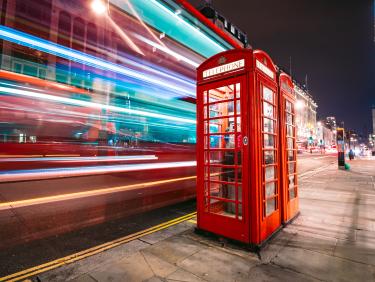Transfer Communication
Science communication takes on functions of society by investing the considerable effort of translation necessary to promote an interest in science and to generate an understanding of scientific findings and their provisional character. It crafts the dialogue with both the general public and specific publics, as well as initiating and accompanying cooperation with different partners. Being an essential factor for the national and international visibility of the university and its scholars’ research achievements, science communication forms a central pillar of the university’s communication and transfer strategy.
With different event and communication formats addressed to the broad public, including the Academic Lunch Break, the Ruperto Carola Lecture Series, or ÜberLebensStrategien, and also through bringing representatives of politics, culture or industry together with scientists and scholars, Heidelberg University aims to connect research expertise and specialist knowledge with the different interest groups. In addition, publications and digital formats – e.g. the multiple prizewinning research magazine “Ruperto Carola”, regular media reporting on current research projects, social media and the university website – promote the communication of scientific content and findings to every sector of society. The central concern of these activities is to make research results fruitful for innovations of all kinds and thereby open up new perspectives for students and early-career researchers.
The Marsilius Kolleg of Heidelberg University has launched the event format “Marsilius kontrovers”, which is an open forum for discussing socially relevant topics with a broad public (e.g. surrogate motherhood, genome-editing, big data in medicine).
The Heidelberg Center for Cultural Heritage (HCCH) or the Heidelberg Center for the Environment (HCE), for example, also enable exchanges at the interface between science and the public. In the last few years, internationally significant exhibitions have been organised in close cooperation with the Reiss Engelhorn Museums in Mannheim, attracting thousands of visitors each time. Members of the university also reach a wide audience with their expert contributions via different media.

Research Magazine “Ruperto Carola”
The research magazine “Ruperto Carola” reports on scientific findings and ongoing research projects at Heidelberg University. Each issue of the magazine is dedicated to a socially relevant topic on which Heidelberg researchers present their scientific work across disciplines and subjects. In easy-to-understand language, the authors show the myriad ways in which research is conducted at Heidelberg University.

Nature Marsilius Visiting Professorship
In cooperation with the Veranstaltungsforum of the Holtzbrinck Publishing Group and the Klaus Tschira Foundation, the Nature Marsilius Visiting Professorship for Science Communication was established at the Marsilius Kolleg. As experts in science communication and quality journalism, each of the visiting professors shares with young scientists how to best communicate their research results to a widely diverse public. The Nature Marsilius Visiting Professorship is intended to sharpen awareness of the growing importance of good science communication. The visiting professorship aids society in shaping the future through science.

SCIENCE AND THE ARTS
Researchers at Heidelberg University are working from different disciplinary perspectives on the interaction of science and the arts, as well as synergies resulting from the interplay of these two areas. The central concern of their respective activities is to open up new angles on current academic issues and, in particular, to strengthen the dialogue with a wider public and defined sub-publics. On the initiative of the Rectorate’s Communications and Marketing (KuM) department, a round table has been set up so that researchers at Heidelberg University and other actors can share views and information on the interface between science and the arts, and current projects in this field.

Lecture Series
Ruperto Carola Lecture Series
With its concept of focal themes, Heidelberg University will in future, on a twice-yearly basis, present socially relevant research topics in different formats to the general public. The offerings include the Ruperto Carola lecture series and the “Ruperto Carola” research magazine.
ÜberLebensStrategien
The "ÜberLebensStrategien" lecture series is a joint project of the Rhein-Neckar-Zeitung (RNZ) and the Heidelberg Collaborative Research Centres working in the life sciences. The editors from the Heidelberg newspaper's editorial office pose questions on the research topics presented, the researchers involved, and the methods used.
Kids’ Uni
Kids’ Uni is a programme of the “Young University”, which offers children and young people the opportunity to gain their first experience with science and research through attending lectures and workshops. In the 2021 summer semester, the Kids’ Uni organised a virtual tour of discovery through Ruperto Carola designed for school children from the age of eight.
wissenschaft.leben
Scientists are reporting on their current research projects in the life sciences in the lecture series “wissenschaft.leben”, their aim being to increase awareness of the importance of basic research in society. The project coordinated at the Centre for Organismal Studies (COS) comprises panel discussions and video podcasts and is meant for the general public.
Networks and Exchange
Heidelberg Collaboratory for Image Processing
The Heidelberg Image Processing Forum is a forum for further education and the exchange of information between universities, research institutes and industry. With lectures by representatives from science and industry, it offers regular insights into current research and development topics.
Physics Research Discussion Group Rhine-Neckar
Two times a year this discussion group provides scientists from industry and universities in the region a forum to discuss their research and development work in the field of physics and to support collaboration on projects that are nearing practical application.
Rhine-Neckar Modelling Day
Modelling Day brings together practitioners and scientists to discuss innovations and modelling approaches in physics research as well as to share experiences. The Heidelberg Graduate School of Mathematical and Computational Methods for the Sciences co-organises the event.
Geoinformation Network of the Rhine-Neckar Metropolitan Region, GeoNet.MRN
The GeoNet.MRN Network is an association of various firms, organisations, university research institutions and municipalities in the greater Rhine-Neckar region that addresses regional topics of concern in which geoinformation is key.






